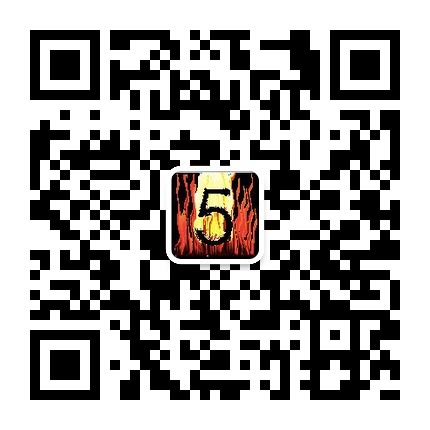关于这个router的使用,我现在依然是心存疑惑的。每点击一次这样的链接 <a href="#action">action</a> 会触发一个事件,但是url也会改变,这样刷新的话,岂不是会自动触发事件。或者这个东西只是用在单个页面的网站上,或者移动设备网站上,或者是我还不会用。
大概解释下Router: Backbone中的router,见名知意,router有路由的意思,显然这里是要控制url的。
Backbone.Router会把你连接中的#标签当做是url路径
即便我心存疑惑,依然是要写几个例子测试一下的。毕竟实践才能解惑。
1、一个简单的例子
.. code:: javascript
var AppRouter = Backbone.Router.extend({
routes: {
"*actions" : "defaultRoute"
},
defaultRoute : function(actions){
alert(actions);
}
});
var app_router = new AppRouter;
Backbone.history.start();需要通过调用Backbone.history.start()方法来初始化这个Router
这个Router的使用很像是django的urlconf文件提供的功能,如果你懂得django的话。
在页面上需要有这样的a标签:
::
<a href="#actions">testActions</a>2、这个routes映射要怎么传参数呢
看下面例子,立马你就知道了
.. code:: javascript
var AppRouter = Backbone.Router.extend({
routes: {
"posts/:id" : "getPost",
"*actions" : "defaultRoute"
},
getPost: function(id) {
alert(id);
},
defaultRoute : function(actions){
alert(actions);
}
});
var app_router = new AppRouter;
Backbone.history.start();对应的页面上应该有一个超链接:
::
<a href="#/posts/120">Post 120</a>从上面已经可以看到匹配#标签之后内容的方法,有两种:一种是用“:”来把#后面的对应的位置作为参数;还有一种是“*”,它可以匹配所有的url,下面再来演练一下。
.. code:: javascript
var AppRouter = Backbone.Router.extend({
routes: {
"posts/:id" : "getPost",
"download/*path": "downloadFile", //对应的链接为<a href="#/download/user/images/hey.gif">download gif</a>
":route/:action": "loadView", //对应的链接为<a href="#/dashboard/graph">Load Route/Action View</a>
"*actions" : "defaultRoute"
},
getPost: function(id) {
alert(id);
},
defaultRoute : function(actions){
alert(actions);
},
downloadFile: function( path ){
alert(path); // user/images/hey.gif
},
loadView: function( route, action ){
alert(route + "_" + action); // dashboard_graph
}
});
var app_router = new AppRouter;
Backbone.history.start();总结,router的使用看起来能够去除通过对dom节点的绑定来触发事件的那种繁琐,但唯一让我觉得不爽的就是点击之后如果再刷新,就会重新执行一遍对应的方法,因为url已经变了。或许这个也是可以解决的问题,只是我还没有发现。
另外,在其他的模块中(指:model,view,collection),也可以通过使用routes:{}来根据链接触发函数。
下面给出完整的代码,注释自己去掉试验:
.. code:: html
<!DOCTYPE html>
<html>
<head>
<title>the5fire-backbone-router</title>
</head>
<body>
<a href="#/posts/120">Post 120</a>
<a href="#/download/user/images/hey.gif">download gif</a>
<a href="#/dashboard/graph">Load Route/Action View</a>
</body>
<script src="http://backbonejs.org/test/vendor/jquery.js"></script>
<script src="http://backbonejs.org/test/vendor/underscore.js"></script>
<script src="http://documentcloud.github.com/backbone/backbone-min.js"></script>
<script>
(function ($) {
//Backbone中的router,见名知意,router有路由的意思,显然这里是要控制url的。
//Backbone.Router会把你连接中的#标签当做是url路径
/**
//1、来看一个简单的例子
var AppRouter = Backbone.Router.extend({
routes: {
"*actions" : "defaultRoute"
},
defaultRoute : function(actions){
alert(actions);
}
});
var app_router = new AppRouter;
Backbone.history.start();
//2、既然是对url进行匹配那么它应该不仅仅只是简单的静态匹配,应该具有传递参数的功能,所以下面再来一个动态的router的例子.
var AppRouter = Backbone.Router.extend({
routes: {
"posts/:id" : "getPost",
"*actions" : "defaultRoute"
},
getPost: function(id) {
alert(id);
},
defaultRoute : function(actions){
alert(actions);
}
});
var app_router = new AppRouter;
Backbone.history.start();
**/
//从上面已经可以看到匹配#标签之后内容的方法,有两种:一种是用“:”来把#后面的对应的位置作为参数;还有一种是“*”,它可以匹配所有的url,下面再来演练一下。
var AppRouter = Backbone.Router.extend({
routes: {
"posts/:id" : "getPost",
"download/*path": "downloadFile", //对应的链接为<a href="#/download/user/images/hey.gif">download gif</a>
":route/:action": "loadView", //对应的链接为<a href="#/dashboard/graph">Load Route/Action View</a>
"*actions" : "defaultRoute"
},
getPost: function(id) {
alert(id);
},
defaultRoute : function(actions){
alert(actions);
},
downloadFile: function( path ){
alert(path); // user/images/hey.gif
},
loadView: function( route, action ){
alert(route + "_" + action); // dashboard_graph
}
});
var app_router = new AppRouter;
Backbone.history.start();
})(jQuery);
</script>
</html>最新的代码参考:https://gist.github.com/the5fire/6987376
- from the5fire.com微信公众号:Python程序员杂谈
